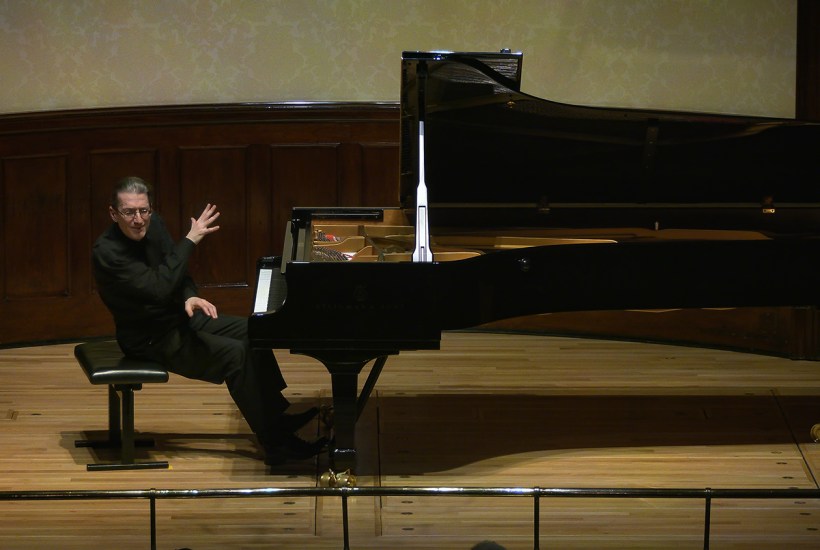Imagine being a concert pianist and choosing your own programmes. All those possibilities; all that power! ‘I am the orchestra!’ declared Hector Berlioz, imagining himself inside the head of Franz Liszt. ‘I am the chorus and conductor as well. My piano sings, broods, flashes, thunders.’ The heart lifts when a pianist thinks a little differently about their recital programmes and tries to make connections and tell stories beyond the familiar tramlines of Bach, Beethoven and late Schubert.
Already a subscriber? Log in
Subscribe for just $2 a week
Try a month of The Spectator Australia absolutely free and without commitment. Not only that but – if you choose to continue – you’ll pay just $2 a week for your first year.
- Unlimited access to spectator.com.au and app
- The weekly edition on the Spectator Australia app
- Spectator podcasts and newsletters
- Full access to spectator.co.uk
Unlock this article
You might disagree with half of it, but you’ll enjoy reading all of it. Try your first month for free, then just $2 a week for the remainder of your first year.








Comments
Don't miss out
Join the conversation with other Spectator Australia readers. Subscribe to leave a comment.
SUBSCRIBEAlready a subscriber? Log in